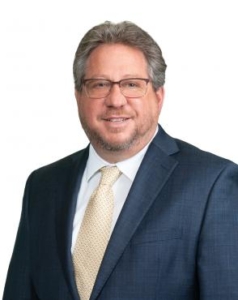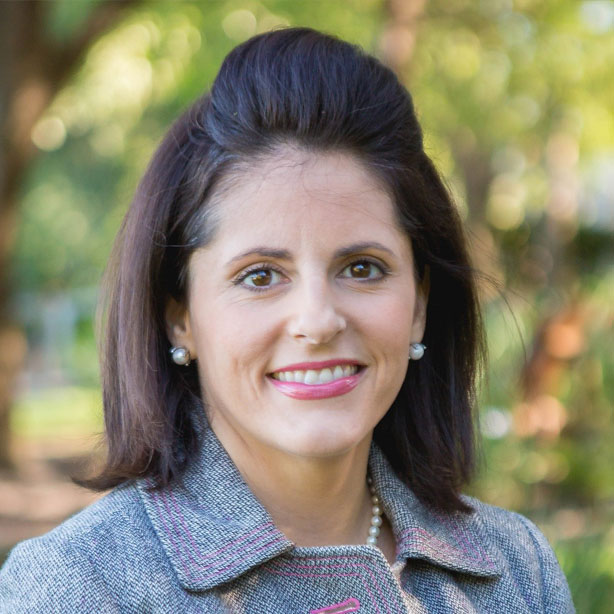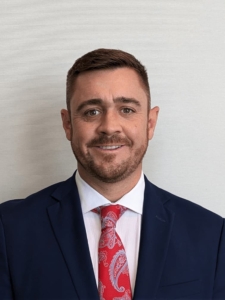The Orlando Law Group
Homeowners Association
The Orlando Law Group is proud to represent Homeowners Associations and Condominium Owners Associations across Central Florida. The goal of our dedicated attorneys is to provide outstanding legal services at a fair price while tending to all of your Association’s unique needs. Every Homeowner’s Association is different, but they all need to assure the timely, uniform, and consistent enforcement of association policies. We will deliver personal attention and legal services tailored to the individual needs of your Association.
In Florida, it is common for homeowners or condominium owners to live in a community with a Homeowners Association or a Condominium Owners Association, generally referred to as an HOA or a COA, respectively. Associations are commonly found in housing or property developments where people share a common area or amenities, such as:
- Planned or private neighborhoods.
- Subdivisions.
- Gated communities.
- Condominiums.
- Townhome complexes.
- Apartment buildings.
First, what is the general purpose of an HOA or COA? While each and every HOA or COA is slightly different and may operate in slightly different ways, the overall purpose of any HOA or COA is the same. An HOA or COA is an organization that develops and enforces rules and guidelines for properties and residents living within a subdivision, planned community, or condominium. Generally, an Association is made up of and operated by residents of the community, who are elected by fellow members of the Association. Those who are elected to run an HOA or COA are usually referred to as the HOA or COA’s Board, or “Board of Directors.” When someone purchases property located within the jurisdiction of an HOA or COA, they become a member of that Association, and are required to follow the rules and regulations associated with that Association.
An HOA or COA develops and enforces regulations and guidelines for its members, with the ultimate goal and purpose of providing structure to the community, preserve and enhance the community’s property values, and make sure the community is a pleasant and well-maintained place for its residents to live.
The responsibilities of an HOA or COA may include (but are not limited to) any of the following:
Develop and Enforce Rules and Regulations
- Develop and approve covenants, conditions, rules, and bylaws, as well as amend old rules and regulations when necessary
- Hear complaints from residents and make decisions as to how to handle disputes within the community
- Enforce penalties against residents if they do not comply with the Association’s rules and regulations in the form of fines or legal action
Hold Meetings and Communicate with Members
- Hold meetings for members, hear out concerns of the members, determine voting matters, vote on issues, elect a new Board, etc.
- Hold meetings for the Board of Directors
- Communicate with homeowners, property managers, attorneys, and other personnel
- Planning events or social activities.
Oversee the Finances of the Community
- Set annual and/or monthly budget with input from owners
- Keep and maintain financial records
- Set and collect assessment fees
- Pursue collections against homeowners who do not pay their assessments on time
- Maintain a reserve of funds
- Allocate spending for insurance coverage
Maintain the Neighborhood
- Budget for upkeep and maintenance
- Collect bids from contractors for maintenance
- Schedule and arrange inspections
- Respond to emergencies
Some HOAs or COAs are voluntary, while others are mandatory. Voluntary HOAs/COAs are optional to join, but members can access shared amenities, like a clubhouse, gym, or pool. In most cases, if you don’t join the Association, you don’t get the perks. Mandatory HOAs/COAs are exactly as they sound-mandatory. If you purchase property in a mandatory HOA or COA, you must pay HOA/COA fees and follow the rules and regulations of that Association. When buying new property, you will want to know whether there is an Association, and whether that Association is mandatory or voluntary. Please note that throughout the rest of this blog, we will mainly be referring to mandatory Associations.
The authority of HOAs and COAs to enforce their rules and regulations is rooted in statutory authority by the state of Florida. Chapter 720 of the Florida Statutes empowers and controls the ability of HOAs to enforce their rules, whereas Chapter 718 of the Florida Statutes empowers and controls the ability of COAs to enforce their rules. While the Florida Statutes empower HOAs and COAs to enforce their rules, the Statutes also restrict HOAs and COAs in several keyways and provide rights to homeowners and condominium owners, such as the right to peacefully assemble, display the U.S. flag, request official Association records, and, in serious cases, the right to recall the Board.
While statutes set the framework for HOAs and COAs, every Association is different. It is also important to remember that Associations must always adhere to the statutes which govern them. Even for an experienced Board, navigating the difficult road of strictly following these statutes, listening to and responding accordingly to owner inquiries and requests, ensuring that community standards are upheld and applied equally, developing a budget and rules for the Association, and satisfying owners all at once can be an incredibly daunting challenge for any Board member.
That’s where a great Association law firm and attorney comes in. A great HOA or COA attorney ensures that the Board and community are operating efficiently, smoothly, and, most importantly, legally. Being a Board member comes with navigating many complex and unknown situations. Having a lawyer that you can trust on hand to advise on and handle every situation is an invaluable asset for all Associations. But Association Attorneys do more than defend Associations when they get into legal trouble. They inform Associations, of their rights and obligations, interpret legal documents and rules and prevent Board members from making mistakes which may be to the detriment of the Association.
Often, Associations turn to lawyers as a last resort – after the contract has been signed, or when a dispute is already out of control. However, good legal advice is one of the greatest preventative measures a lawyer can provide. Not only can it save the Association money in the long run, but it can also save Associations from unpleasant difficulties later.
At The Orlando Law Group, you can be sure that your attorney possesses both a sharp, experienced legal mind, and a friendly smile that will welcome and comfort you. What’s more, we are serious about preventative legal tactics, working to solve issues for our clients before they blow up into legal messes. Simply put, we are here for you, and we have your back at all times!
Furthermore, there are some tasks that an Association legally cannot do without the help of an attorney. There are certain documents that must be completed by an attorney, based on the fact that they involve the interpretation of Florida Statutes while requiring a level of legal expertise and a familiarity with the Association’s Articles of Incorporation, Bylaws, Covenants, and Declarations. Further, based on the fact that the officers and directors of an association owe a fiduciary duty to its members, it is important to keep in mind that any document pertaining to their obligations, or the obligations of its members, be drafted properly. The following activities are considered the unlicensed practice of law if performed or completed, on behalf of the association, by anyone other than an attorney:
- Drafting a claim of lien;
- Drafting a satisfaction of claim of lien;
- Drafting a Notice of Commencement Form;
- Determining the timing, method, and form of giving notice of meetings;
- Determining the votes necessary for certain actions, which would entail interpretation of certain statutes and rules;
- Answering a community association’s question about the application of law to a matter being considered,
- advising a community association that an action or course of action may not be authorized by law or rule;
- Drafting any document that must comply with Florida law; and
- Drafting the documents required to exercise a community association’s right of approval or first refusal to a sale or lease.
Due to the fact that such actions may affect, impair, or enhance the rights of numerous homeowners and their property interests, an attorney should be the one to draft and advise on them. Allowing anyone other than an attorney to complete these tasks opens up the Association to liability, as well as the possibility of Florida Statute violations. As such, hiring an Association Attorney isn’t just something a Board should do when they get into trouble – rather, it is a necessity for any Board to ensure they are operating legally.
Examples of services we can provide for your Homeowners Association include, but are certainly not limited to:
- Reviewing, drafting, and amending all contracts, policies and procedures, bylaws, etc.
- Rule Enforcement, such as easements and covenant violations
- Covenant violations may include:
- Restrictions on the ownership of pets
- Fence height regulations
- Bans on certain colors of paint for home exteriors
- Restrictions on developing land or adding on to existing home structures
- Covenant violations may include:
- Providing legal counsel on all day-to-day operational decisions of the Association
- Assisting in seeking HOA or COA Collections from non-compliant owners
- Interpreting and enforcing HOA governing documents
- Resolving homeowner or condominium owner disputes
- Providing legal counsel on fiscal management issues such as maintaining reserves and conducting special assessments
- Enforcing liens or the payment of HOA fees and foreclosure
- Advising on Annual Meetings & Elections
- Representing Associations in Mediations, Arbitrations, Litigation & Dispute Resolution
- Legal counsel regarding statutes, rules and regulations for homeowners and condo associations in Florida
- Litigating construction defect claims
- Drafting and negotiating contracts for the Association (ex. Development contracts, management company contracts, landscaping contracts, vendor contracts, etc.)
- Reviewing short sale packages
- Advising on employment issues
- Representing Associations before the Department of Business and Professional Regulation
The attorneys at The Orlando Law Group represent HOAs and COAs throughout Orlando, Waterford Lakes, Altamonte Springs, Winter Garden, Lake Nona, St. Cloud, Kissimmee, and throughout Central Florida.
If you are an Association board member, please reach out to our office at 407-512-4394, fill out our online contact form. We provide representation and legal services for both HOAs and COAs alike.
If you have questions about anything discussed in this article or other legal matters, give our office a call at 407-512-4394 or fill out our online contact form to schedule a consultation. We have an office conveniently located at 12301 Lake Underhill Rd, Suite 213, Orlando, FL 32828, as well as offices in Seminole, Osceola and West Orange counties to assist you.
Discuss your case with us
or call us
(407) 512-4394



 Jeffrey W. Smith
Attorney
Jeffrey W. Smith
Attorney

 Dan Sanders
Attorney
Dan Sanders
Attorney
 Wendy Hernandez O’Donnell
Attorney
Wendy Hernandez O’Donnell
Attorney









